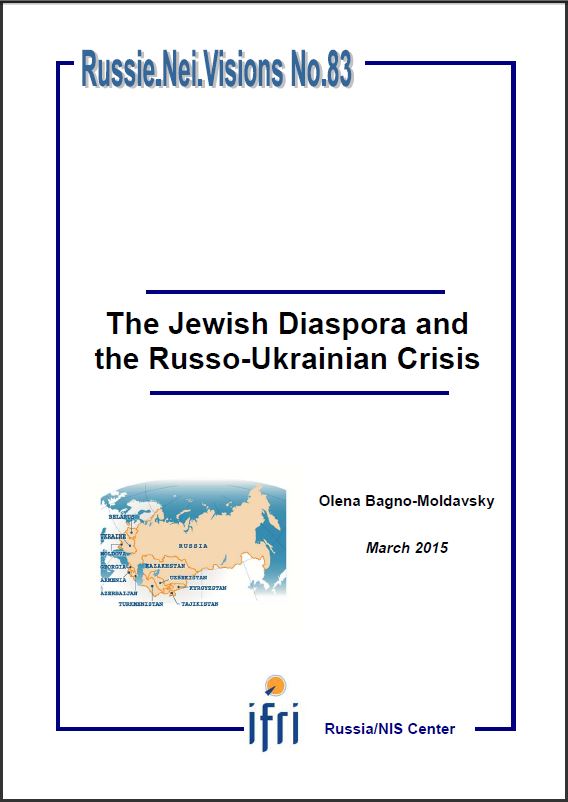The Jewish Diaspora and the Russo-Ukrainian Crisis

Two questions arise when the role of a diaspora in crisis is considered. Do diasporas embody an internal threat to the security of the nation state? And why do some efforts to use diasporas as a tool of international politics succeed while others fail? In this paper, the Ukrainian 2014-2015 crisis involving Russia is analyzed in order to suggest answers to these questions. The author examines the political reactions of a specific diaspora group: the Jews in Ukraine and Russia.
The author finds that the diaspora became divided across the fault-line of a clash between the two states, Russia and Ukraine. She concludes that, ultimately, the political power of the diasporas in Russia and Ukraine is limited, and cannot really diverge from the political line of the host state. Concerning the diaspora-host-homeland relational triangle, the paper suggests that the neutral position of Ukraine toward Israel allows more freedom for diaspora organizations to advance an independent political agenda, while the difference in foreign-policy goals between Israel and Russia means that the diaspora organizations have no choice, but to limit their political activism to the permitted cultural-economic spheres.
Download the full analysis
This page contains only a summary of our work. If you would like to have access to all the information from our research on the subject, you can download the full version in PDF format.
The Jewish Diaspora and the Russo-Ukrainian Crisis
Related centers and programs
Discover our other research centers and programsFind out more
Discover all our analysesRussia, the Palestinians and Gaza: Adjustments after October 7th
The Soviet Union (USSR), and subsequently the Russian Federation as its internationally recognized legal successor, has consistently sought to play a visible role in efforts to resolve the Israeli-Palestinian conflict.
Deathonomics: The Social, Political, and Economic Costs of War in Russia
The report attempts to outline and examine a truly new phenomenon in Russian society, dubbed “deathonomics”—the making of a mercenary army against the backdrop of the Kremlin’s war in Ukraine, eventually replacing both the Soviet (conscript) and early new Russian (contract) armies. It notes that, by the end of 2023, this trend had turned the military service into one of the highest-paying professions in the country, something not seen in Russia on such a scale since the late 17th century.
Russia's Asia Strategy: Bolstering the Eagle's Eastern Wing
Among Russia’s strategic priorities, Asia traditionally played a secondary role compared to the West. In the mid-1990s, then Foreign Minister Yevgeny Primakov initiated a rapprochement with China and India. Then, in 2014, deteriorating relations between Russia and the West prompted Moscow to begin its “great pivot to the East”.
Kazakhstan After the Double Shock of 2022: Political, Economic and Military Consequences
The year 2022 represented a dual shock for Kazakhstan. In January, the country faced its most severe political crisis since independence, followed in February by Russia’s full-scale invasion of Ukraine, which cast uncertainty over the borders of post-Soviet states. These consecutive crises profoundly shaped Kazakhstan’s domestic and foreign policy.











